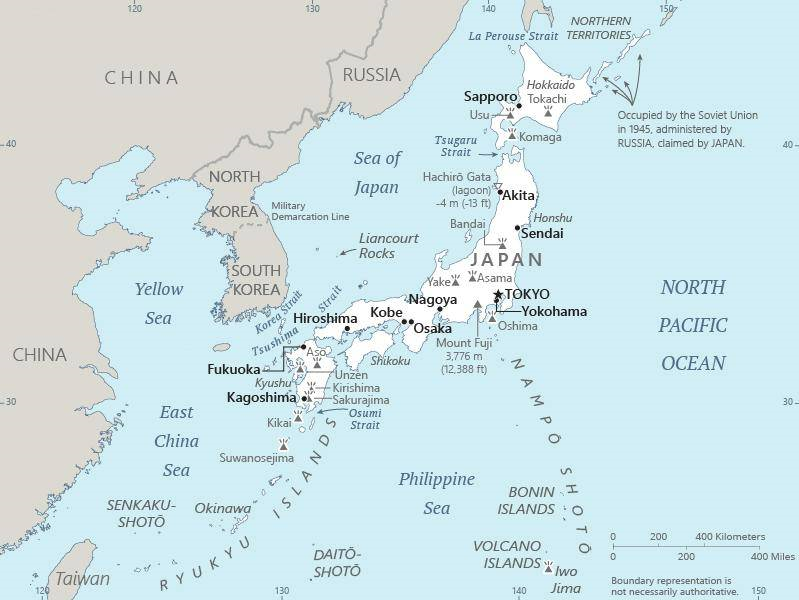FBAR Filing for Japanese Americans
Overview
For many Japanese Americans, managing financial assets across borders is a common scenario. With the growing economic interdependence between the United States and Japan, it's crucial for those holding financial interests in Japan to understand the Foreign Bank and Financial Accounts Report (FBAR) requirements. Failing to comply can lead to significant penalties, making awareness and adherence to these regulations essential.

What is FBAR?
The FBAR is a report filed electronically with the Financial Crimes Enforcement Network (FinCEN), a bureau of the U.S. Department of Treasury. It applies to U.S. persons, including Japanese Americans, who have financial interests in or signature authority over foreign financial accounts exceeding $10,000 at any point during the calendar year.
Who Must File FBAR?
- U.S. Citizens: Including those of Japanese origin.
- Lawful Permanent Residents (Green Card Holders): Regardless of their residence.
- Foreign Nationals: Who meet the Substantial Presence Test in the U.S.
Reporting Basics
The aggregate value of all foreign financial accounts is considered. If at any time during the year, this value exceeds $10,000, an FBAR must be filed. The deadline for filing is April 15, with an automatic extension to October.
Japan FBAR & IRS Compliance
The FBAR Japan reporting requirements to the IRS are comprehensive, encompassing various accounts and assets such as Fixed Deposits (FD), Mutual Funds, Life Insurance Policies, Public Provident Funds, and more. Japan's cooperation with international agreements like FATCA and CRS underlines the importance of compliance.
10 Key Points for Japanese Americans Filing FBAR
- FBAR vs. Tax Return: The FBAR is not part of your tax return and must be filed separately through the Financial Crimes Enforcement Network (FinCEN).
- Deadline: The FBAR has a strict filing deadline of June 30th each year, with no extensions available.
- Reporting Requirement: Mandatory for foreign accounts, regardless of whether they generate taxable income.
- Aggregate Balances: Consider the combined balance of all foreign financial accounts. If it exceeds $10,000 at any time during the year, filing is required.
- Joint Accounts: Joint accounts with non-U.S. persons must be reported, including accounts where you have partial interest.
- Signature Authority: Reporting is required for accounts where you have signature authority, even if there's no financial interest.
- Financial Interest: Any financial interest in foreign accounts triggers the need to file an FBAR.
- Diverse Financial Accounts: The FBAR covers a broad scope of accounts, including savings, brokerage, and mutual funds.
- Penalties: Non-compliance can result in significant fines and legal consequences.
- Amendments and Corrections: If you've missed reporting in previous years, corrective action is advised through IRS avenues for amending past filings.
Japan-Specific Reporting Requirements
- NRE Accounts: Report all Non-Resident External accounts, including total balance and interest earned. Taxable in the U.S., regardless of tax-exempt status in Japan.
- NRO Accounts: Mandatory reporting of all Non-Resident Ordinary accounts, which are taxable in both Japan and the U.S. Includes principal and any earned interest.
- Japanese Stocks and Mutual Funds: Report all investments in Japanese equities and mutual funds. This includes the market value of the stocks, mutual fund units, ETFs, and SICAVs.
- Japanese Pension Funds and Insurance Policies: Report details of pension funds and insurance policies in Japan, particularly if they have an investment or cash value component, subject to U.S. tax laws.
- Bank Accounts in Major Japanese Banks: Declare all types of accounts held in major Japanese banks like State Bank of Japan, Mizuho Bank, Chiba Bank, and Norinchukin Bank.
- Foreign Business Interests in Japan: Report any direct or indirect ownership interests or signature authority over business accounts in Japanese companies or entities.
- Stock Investment Accounts in Japan: Include all traditional and Demat stock investment accounts. Report the current value and any income generated from these investments.
- Fixed and Term Deposits in Japan: Report all fixed and term deposit accounts held in Japanese banks, focusing on the interest earned and total account balances as of the reporting date.
Additional Financial Assets and Income from Japan
- Capital Gains from Japanese Assets: Report any capital gains realized from the sale of assets in Japan, including real estate, stocks, or other investments.
- Rental Income from Japanese Properties: Include all rental income derived from properties located in Japan, along with associated expenses and net income.
- Interest on Future Property Development in Japan: Report interest income earned from investments made in property development projects within Japan, including pre-construction and under-construction stages.
- Retirement Contributions in Japan: Include contributions made to Japanese retirement accounts, focusing on the yearly contributions and growth within the accounts, as per U.S.-Japan Tax Treaty.
- Life Insurance Policies in Japan: Report any Japanese life insurance policies with a cash surrender value or investment component, detailing the cash value and premiums paid.
Compliance and Tax Considerations for Japanese Americans
- FATCA Compliance for Japanese Accounts: Ensure all accounts in Japanese financial institutions are reported in compliance with FATCA regulations.
- U.S.-Japan Tax Treaties and Agreements: Utilize provisions of U.S.-Japan Tax Treaties to understand tax liabilities and reporting obligations.
- Banking Regulations in Japan: Adhere to Japanese banking regulations, especially for accounts requiring FATCA compliance.
- Public Provident Fund (PPF) Accruals in Japan: Include details of PPF accounts in Japan, reporting yearly accruals, withdrawals, and balances.
- Foreign Tax Credit for Taxes Paid in Japan: Claim foreign tax credits on the U.S. tax return for taxes paid in Japan to avoid double taxation.
- Foreign Earned Income Exclusion for Income from Japan: Consider excluding certain types of earned income from Japan under specific tests.
- EPF (Employee Provident Fund) Benefits in Japan: Review tax deferral options for contributions and growth within the EPF as per U.S.-Japan Tax Treaty.
- FATCA and FBAR Compliance for Japanese Accounts: Report all foreign financial accounts, including those in Japan, in compliance with FATCA and FBAR requirements.
- Risks of Transferring Account Ownership in Japan: Understand compliance implications and risks associated with transferring account ownership in Japan.
- Tax Professionals for Japanese Assets: Engage with tax professionals specializing in U.S.-Japan cross-border taxation for accurate reporting and advice.
- Voluntary Disclosure Programs for Japanese Assets: Explore IRS voluntary disclosure programs for previously unreported assets in Japan.
- Understanding U.S.-Japan Tax Treaties: Regularly update knowledge about changes in U.S.-Japan Tax Treaties affecting tax and reporting requirements.
- Decisions About Japanese Assets: Make informed decisions about managing, transferring, or reporting Japanese assets to avoid unintended tax consequences.
- Annual Review of Finances for Japanese Americans: Conduct an annual review of all foreign financial assets related to Japan, including bank accounts, investments, and other financial holdings, to ensure compliance.
Frequently Asked Questions (FAQs)
What if I only have a small amount in my Japanese account?
Even if the balance in an individual foreign account is small, the FBAR requirement is triggered when the aggregate balance of all foreign financial accounts exceeds $10,000 at any point during the calendar year. This includes any combination of checking, savings, investments, or other types of financial accounts held outside of the U.S.
Are there any exemptions for Japanese Americans?
FBAR regulations do not provide specific exemptions for Japanese Americans. The rules apply uniformly to all U.S. persons, which includes U.S. citizens, permanent residents, and those meeting the substantial presence test. This means Japanese Americans are subject to the same reporting requirements as all other U.S. persons.
Can I face penalties if I haven't filed in previous years?
Yes, failing to file an FBAR can result in severe penalties, including substantial monetary fines and, in extreme cases, criminal prosecution. However, the IRS offers voluntary disclosure programs to help individuals who have not filed in the past to come into compliance, potentially reducing or eliminating these penalties.
How do I file an FBAR?
To file an FBAR (Foreign Bank and Financial Accounts Report), you should visit the e-filing website specifically for FBAR at efilefbar. Once there, you will need to complete the online application form.
Do I need to report accounts held in Japanese Yens?
All foreign financial accounts, regardless of the currency in which they are denominated, need to be reported on the FBAR. This includes accounts held in Japanese Yens. The reported balance should be converted into U.S. dollars using the appropriate year-end Treasury Reporting Rates of Exchange.
Is there a minimum age for filing FBAR?
The FBAR filing requirement is not age-dependent. It is solely based on the account balance threshold. Therefore, even minors who have foreign financial accounts exceeding the $10,000 threshold at any time during the calendar year are required to file an FBAR.
Do retirement accounts in Japan need to be reported?
U.S. persons are required to report foreign retirement accounts, including those in Japan, if the aggregate value of all foreign accounts exceeds the $10,000 threshold. This includes Japanese pension plans and other retirement savings accounts.
Are joint accounts with a non-U.S. person reportable?
Joint accounts held with non-U.S. persons must be reported if the total aggregate value of all foreign accounts, including the joint account, exceeds $10,000 at any point during the year. Each account holder is responsible for reporting the full value of the joint account on their FBAR.
What happens if I inadvertently fail to file an FBAR?
If the failure to file was non-willful, meaning it was due to a reasonable cause and not due to willful neglect, the penalty may be waived. However, you must rectify this as soon as possible. Deliberate failure to file can result in more severe consequences, including higher penalties.
Can I file an FBAR for a previous year?
If you failed to file an FBAR in a previous year and were required to do so, you should file as soon as possible. The IRS allows for the filing of delinquent FBARs, but it is advisable to consult with a tax professional to understand the potential consequences and the best way to proceed.
File Your FBAR Now
For Japanese Americans, compliance with FBAR regulations is crucial. Understanding these requirements ensures financial transparency and avoids the risk of penalties. As cross-border financial activities continue to grow, staying informed and compliant is more important than ever.
Have you reviewed your financial accounts and determined that you need to file an FBAR? Don't wait until the deadline approaches. Ensure compliance and peace of mind by filing your FBAR today. Follow these simple steps:
Gather Your Financial Information
Collect details of all your foreign financial accounts, including account numbers, bank names, and the highest balance of each account during the year.
Visit the FBAR E-filing Website
Click on the button below to be directed to the official e-filing website for FBARs.
File Your FBAR NowComplete the Online Form
Fill out the required information on the e-filing website. Ensure that all details are accurate and complete.
Submit Your FBAR
Once you have filled out the form, review your information and submit your FBAR electronically.
Remember, filing your FBAR on time is crucial to avoid any penalties. If you are unsure about the process or have complex financial situations, consider consulting a tax professional.

